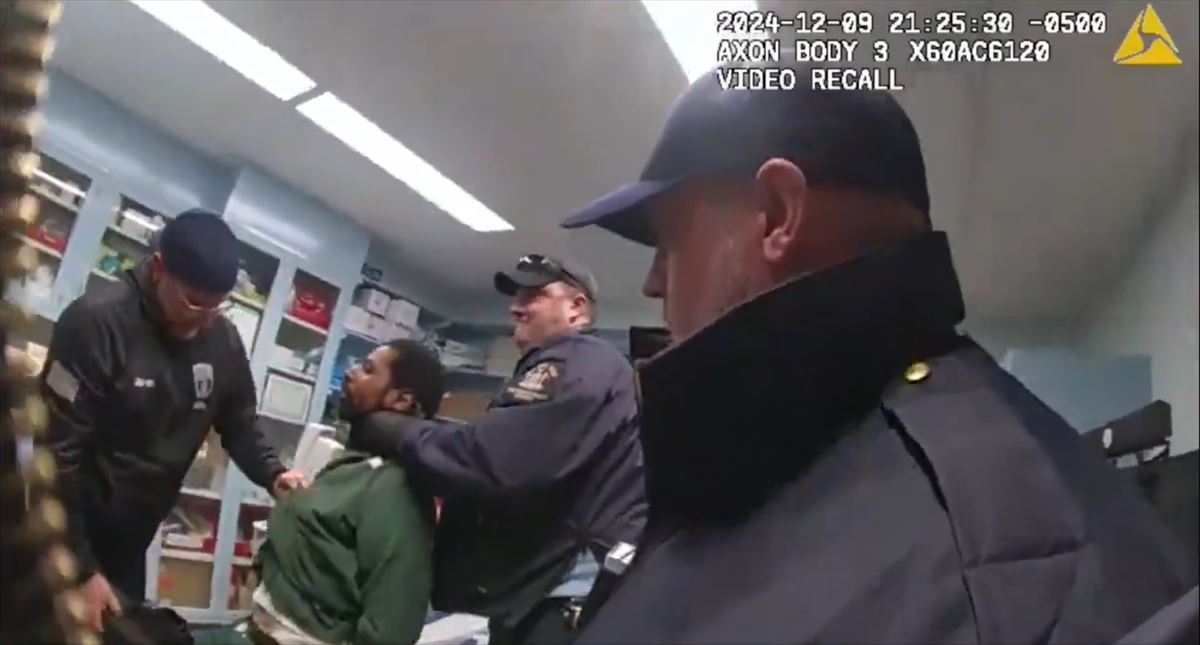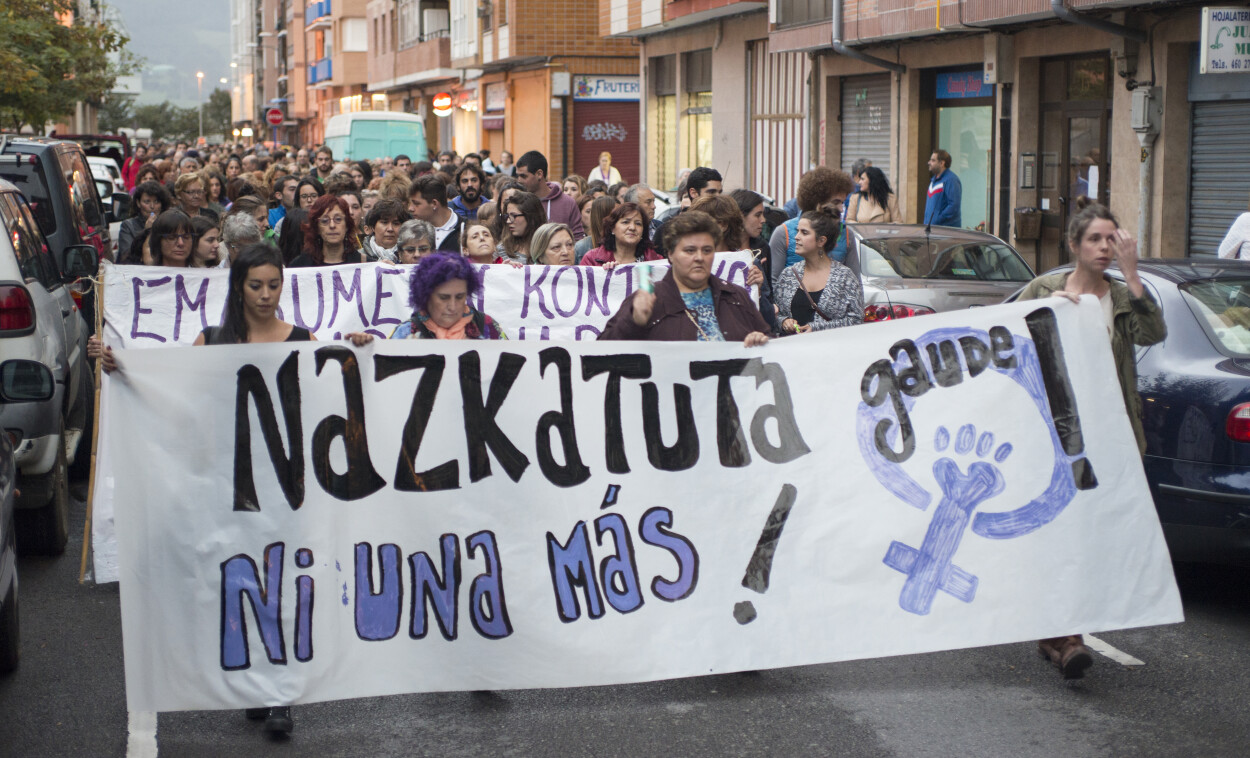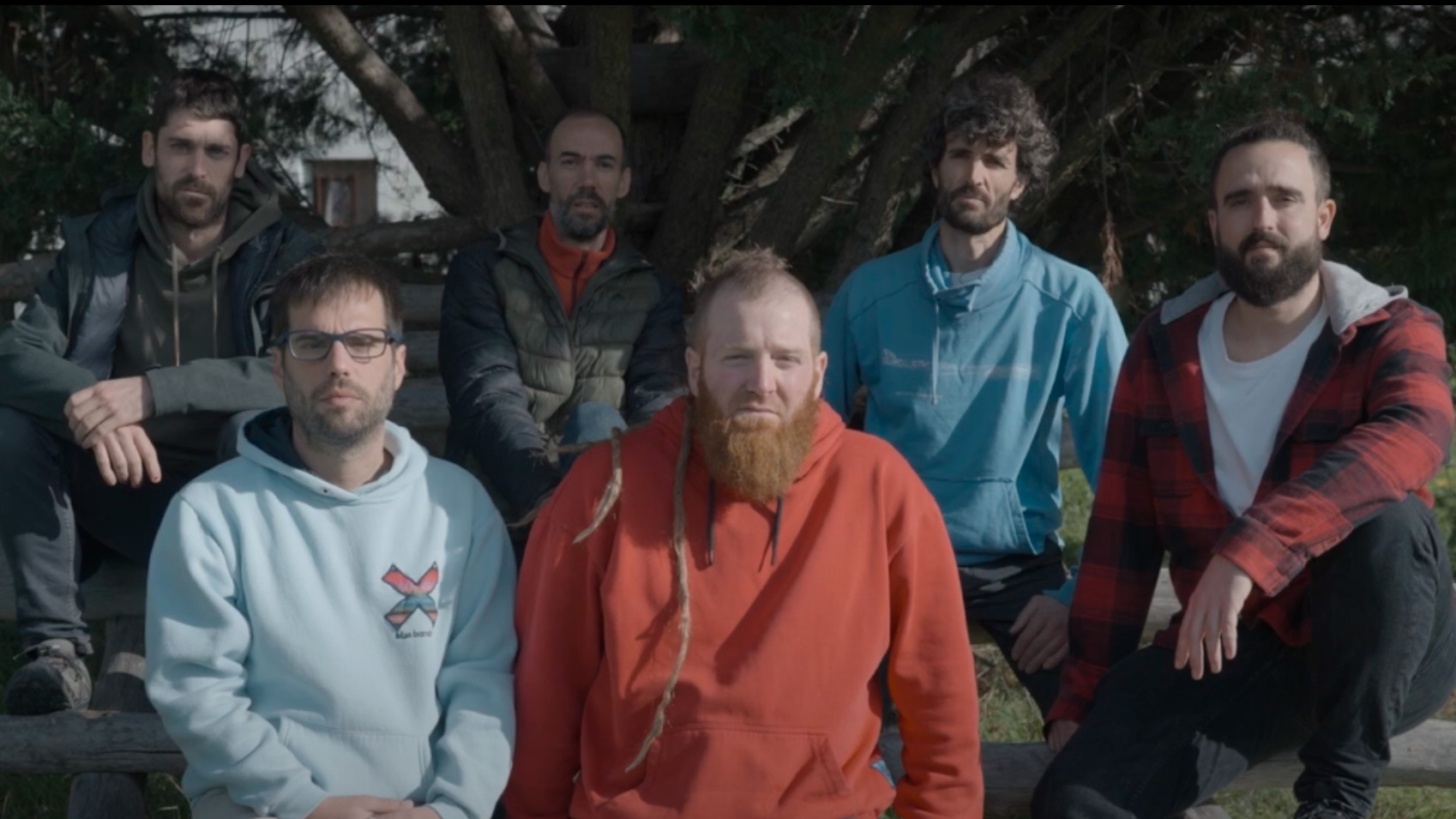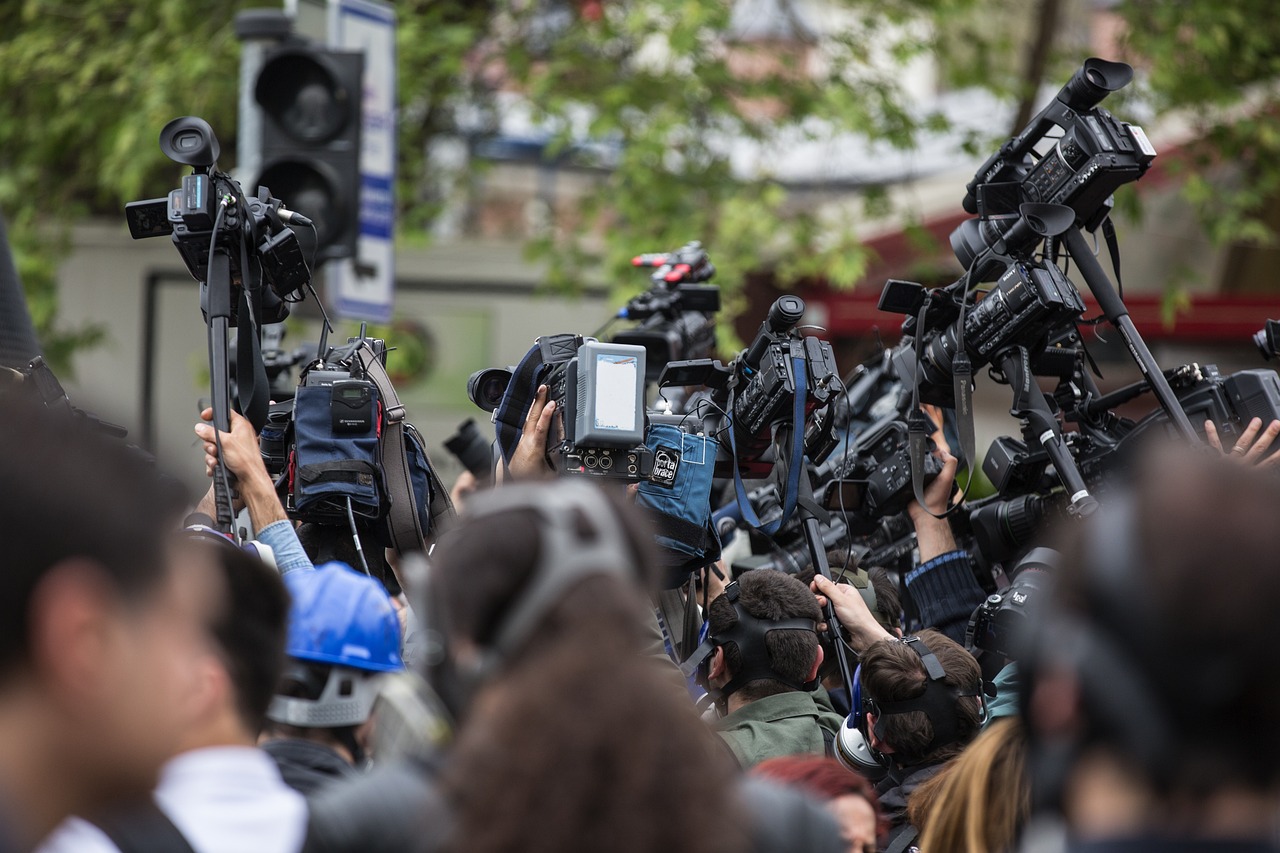The experiences of Basque prisoners in the first person
- Like the whole of society, prisons are suffering a terrible shock following the COVID-19 crisis. At the bottom of the pyramid, however, the waves are more aggressive. In order to make a little light in the dark, ARGIA has proposed to four Basque political prisoners that they display by letter what they have been living since March. With the help of Asier Mardones, Olatz Lasagabaster, Alicia Sáez de la Cuesta and Iñaki Garcés, we will learn how Spanish State prisons have become more prisons, how they have increased isolation and, in general, how the plague is affecting the prisoners. We will know your personal experiences of these months, some of them truly terrible and your future concerns.
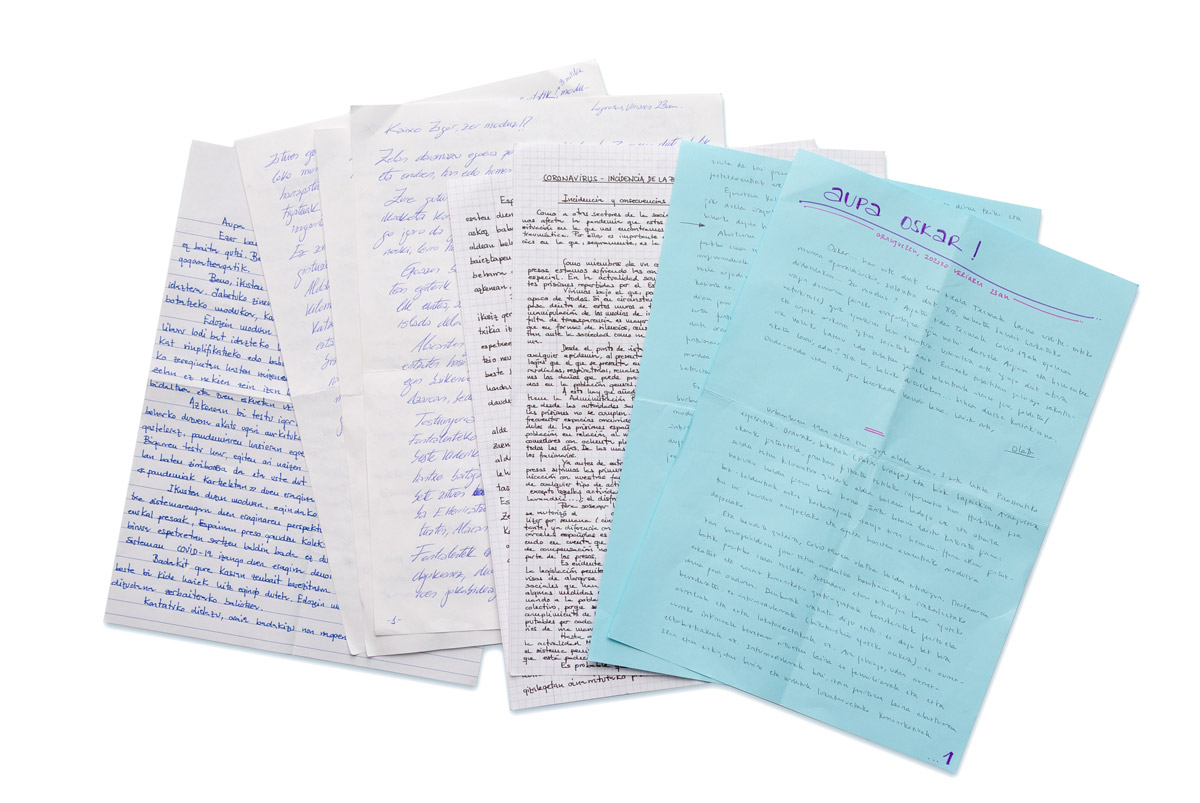
"The virus has left at the end, and fortunately, much less damage than we could expect, in an environment that is very conducive to a massive massacre." With this recognition begins his analytical letter Iñaki Garcés. “No one here expected the death toll to be so small.” Why? : “They are very closed spaces; limited and small areas; most of the mass prisons; great difficulties in meeting the safety distances and other preventive measures, sometimes the lack of will; and, the glowing of the cake, the state of health of the residents: AIDS or the kidney, liver or lung disease is much higher than the rest of the population.”
Dark side of the “island effect”
Prisoners' advocates have called for eviction from prisons to deal with COVID-19: granting conditional freedoms, freeing sick prisoners... However, Garcés explains that the Spanish Government has put in place a counter-strategy: “The Ministry of the Interior decided to hermetically close prisons in order to achieve the Island effect: prisons in an open sea. They wanted to keep them out of the danger of contagion avoiding circulation between jail and the street.” As for the data, he says that the strategy has been “quite effective”.
.jpg)
**Iñaki Garcés Beitia (Otxandio, Bizkaia): The prisoner was first incarcerated between 1987 and 1990. He was subsequently arrested by the Civil Guard in Vitoria-Gasteiz in 1998, after which he was arrested. The National Court sentenced him to 25 years in prison for the crimes of damage at the military base of Araka (Álava), possession of explosives and membership of ETA. He reported having been tortured during the period of incommunicado detention. In prison he was sentenced to a second one-year prison sentence for a fight with a Civil Guard official. He will serve his sentence in full in 2024. It is located in the Zuera prison (Zaragoza, Spain), in the second grade, but without a movement permit. The Social Forum has recently pointed out Zuera prison as the “paradigm” of the obstacles to progress through the legal path.
-----
Otxandio’s prisoner has warned us of the “dark side” of the island effect that is usually left out of statistics: “It is true that in this emergency situation the priority should be that COVID-19 should not enter jails, but when it passes from being a priority to being a single objective, what will be the compensation to which the 50,000 men who currently live in Spanish jails face? What will be the rights and living conditions to be sacrificed?” He answered the question by describing what he is living in Zuera (Zaragoza, Spain).
The management suspended communications between prisoners and family and friends, as well as activities that were the responsibility of teachers or educators. The Otxandiarra has highlighted the loss of confrontations: “We have been without hugging our children, parents, couples and friends for more than eight months.” The leadership has relaxed the isolation measures after the first wave, but there is no provision for visas to be re-approved, “at least in the short term”, according to Garcés. “There is a very curious paradox: almost all the movement of people from the outside has been recovered (teachers, educators, workshop leaders...); but our families are still forbidden to enter”. A paradox that cannot be explained at least by health criteria.
Iñaki Garcés: “Virtually all the movement of people from outside to inside has recovered (educators, workshop leaders...), but our family members are still forbidden to enter”
Punishment added to maternity
On 19 January, Olatz Lasagabaster extradited his daughter Xua from Picassent prison (Valencia, Catalan Countries) for three years. Shortly after separation, Lasagabaster and the Oriotarra prisoner Patxi Uranga were transferred from Picassent to Aranjuez (Madrid, Spain) - the two prisoners are pairs and the parents of both. By then the usurbildarra was already pregnant again: Maddi was born in July in the Madrid jail in Toulouse, about 510 kilometers from his house. She says that Aranjuez’s living conditions are “much worse”: “In this jail, denial is the main thing. Everybody, of course, but here especially. Getting anything is an odyssey. You can wait between two and three months for an instance to answer. Everything is no or, if not, silence. It’s disappointing.”
.jpg)
**Olatz Lasagabaster Anza (Usurbil, Gipuzkoa): The man was arrested by the National Police in 2009 for alleged homicide crimes. The National High Court sentenced him to 12 years in prison for possession of explosives and membership of ETA. He reported having been tortured during the period of incommunicado detention. He will serve his sentence in June 2021. Lasagabaster is the mother of two daughters, Xua and Maddi, the father is a Basque political prisoner Patxi Uranga. In early November 2020, the third grade was approved and both were transferred to Martutene, where they remained on the street on weekdays. Lasagabaster also sleeps out of prison, using the electronic control bracelet, as in Martutene there are no modules for mothers, Maddi was born in the summer of 2020.
-----
On March 7, a quarantine was established in the Lasagabaster module, “for the positive of one of the nursery teachers”. The Director of Penitentiary Institutions told them personally that they would recover communications lost during that time, but he has not kept his word, according to the prisoner: “We have not recovered any of them: neither the intermodulars (who are made with the couple’s prisoners), nor the in-person ones, nor those of the announcers. Moreover, in summer the intimate spaces were restored, but not the family or those of coexistence. They interrupted us again on 28 August and since then we have only communications in the newsrooms. We have had no presence for more than seven months.”
The Spanish Government has promoted video calls as a “substitute” for communications interruptions, a measure that has been applied differently in each prison: "In most prisons a certain frequency has been established. Not here either. With those of the house (we always do them with the daughter) we have ever had (I have done six since March). Intermodules are held approximately every two weeks, but we have recently been almost four weeks without meeting. There are no specific frequencies or criteria.”
Olatz Lasagabaster:
“After three years of being with my daughter 24 hours a day, we’ve gone to see her for nine months, an hour and a half. It’s being very hard.”
What he has lived with his daughter Xua is truly terrible: “Xua was released from jail in January and we will get out on the street in June 2021. We had seventeen months without him, we knew it would be hard, but this did not come into our worst predictions. After three years of being with my daughter 24 hours a day, we've gone to see her for nine months for an hour and a half. It's being very hard. For him and for us.” In February, Lasagabaster, Uranga and Xua had a face-to-face family encounter. “Patxi has not been with him since then,” he wrote bitterly from Aranjuez on 23 October – in November the situation of the family has changed substantially, see presentation box. Lasagabaster again saw Xua in Maddiz’s birth in July, “half an hour a day and ten minutes later.”
However, Lasagabaster feels “privileged” compared to the situation of other members: “We’ll get out to the street soon. There are dozens of children and young people who don't know when they're going to hug their parents, when they're going to be able to play with them, or when they're going to be able to speak quietly. And managing that uncertainty is really difficult, both for prey parents and for young and young people who are at home.”
Like Garcés, Lasagabaster has denounced the rights cuts and stressed that many of them have no health justification, when they are not directly against health. On 28 August, contacts between modules were banned for the positives of some eta prisoners. After the quarantine and the positive missing, the Deputy Director of Security maintained the ban: “It makes no sense: inside the prison the chorizo cannot enter if it is not through officials. But there are officials who don't have a mask, the cure has entered the module twice to say mass... They don’t care and have a perfect excuse to reduce everything now.” It also gives another example: “They want every module to be a bubble, but the three of us here have to go to the next module to call us on the phone, because they say they can’t intercede in the cockpit here.”
Deepen the damage, lose opportunities
As in the rest of the prisons, in Fontcalent (Alicante, Catalan Countries) they also addressed the logic of the bubble or the island. Asier Mardones was already in the Gipuzkoan capital in February of this year. Initially neither he nor his colleagues gave much importance to the suspension of activities and communications, thinking that it would be “a matter of two or three months”. Reflect on the current perspective: “It seems to me that our heads asked us in some way to think like this, not to think too much about what might come.”
.jpg)
**Asier Mardones Esteban (Ugao, Bizkaia): He was arrested by the National Police in 2004 in Urkiola (Bizkaia), where he was admitted to prison. He is serving a sentence of 25 years in jail for ETA integration, injuries and documentary falsehood. He reported having been tortured during the period of incommunicado detention. He was in the Alavese port of Herrera when, on 14 September 2003, Ertzaintza agents and ETA militants murdered Arkaitz Otazua. He will serve a sentence in 2029. She has two daughters with her partner, the Basque political prey Iosune Oña Ispizua, both born in prison and currently residing on the street.
-----
The possibility of alternative video calls to communications was in force within a few weeks, at least formally: “Like any ‘good’ change in prisons, it was chaotic from the start. We had two or three mobiles for almost 1,000 prisoners, there were continuous clashes to sign up on the call lists, with a bad connection that made dialogue difficult...".
The situation and the management of the prison leadership provoked anger and concern among the prisoners, altercations and attempts to escape were carried out, and repression came to them as a reward. The director visited the modules to discuss communication disruption. “He started to launch the prepared speech. However, before concluding, dozens of people were around drowning, angry, with questions and doubts about the visits. The tension rapidly increased and their few responses did not manage to calm the environment.” Many prisoners were charged with “rebellion” and sentenced both with relocation and first grade, “with all this entails”. Mardones explains the attempt to escape these days by this context of tension: “The three prisoners began to climb the walls at the same time at different points. One of them was intercepted by the Civil Guard in the last bastion of the city of Toulouse. The other two were chained in the arriostras (what they do in the body is terrible, as we have seen in the fences of Melilla)”.
On 1 July, Basque prisoners Asier Mardones and Iosune Oña Ispizua were transferred from Fontcalent prison to Logroño prison in La Rioja, Spain. These are the parents of two daughters who already live on the street. Approximation therefore had a fundamental consequence: “We would be 750 kilometers away from 170 of our daughters.” But in Logroño they were also banned and prisoners are prohibited, and the only option for parents is to see their daughters on regular visits. “It’s a kind of visit we’ve always wanted to avoid, coming across the glass, to be 40 minutes and after a long journey.” However, and since the trip is much shorter for her daughters, visits are being considered. They have not been hugged for nine months.
Asier Mardones: “We had two or three mobiles for video calls for nearly 1,000 prisoners, there were ongoing clashes to sign up on call lists, poor connection...”
He says that, while they decide, they try to imagine “naturalness” before their daughters. Their main objective has been to “cultivate and care for the bond” between them and their daughters throughout the year, but it is not easy for them: “To respond to a ‘When do we leave?’ of their daughters, ‘There is less and less left, caress’, fragile, is something that gets worn down.” But he is pleased with what he has achieved: “We are convinced that, seeing their laughs and their forces, this link is healthy (against the desire of this cruel, insensitive and destructive penitentiary system that aims to end children, youth and adults).”
Prior to COVID-19, Mardones recalled that “getting sick here, bad business” was a common expression, denouncing that since March it is worse to care for you: “Although they hide it from us, we know that there are nurses, doctors and jailers who have tested positive. One of the consequences has been the increase in leave due to casualties; from not attending a simple request for instance to go to the dentist, to lengthen the exit to make a CT scan to the hospital to see if the cancer has come back, everything is affected by the pandemic. However, prisoners have continued to hand over pills to give them away. Moreover, the anxiety and tension caused by the situation in prisoners have given more importance to the regular distribution of pills.”
Conversely, for Mardones, the crisis has shown a feasible path to facilitate studies: “If the aforementioned “reintegration” logic was integrated into prison manuals, the possibility of learning online would be opened. Relations with the tutors could be intensified and, by the way, the usual obstacles that prevent them from entering prison would be stepped up to a large extent.” However, he does not believe that the opportunity will be taken, as “in the prison system there is always someone willing to have a minimal evolution to prevent any possibility. These holes are too far from the twenty-first century, after all,” says the watchtower of the sixteen years of shadow experience.
Aware of the long list of problems and concerns on the street, Mardones has called for prisoners and prisoners to be included on the agenda, “to whom we give their due response”.
To death, life
Alicia Sáez de la Cuesta has sent us an intense calendar of pandemics, with notes written on loose days since March, painting the chart of these months with brush strokes of various events. The title of the calendar is very illustrative: “Living in prison at the time of COVID-19, without losing one’s life in the effort.” The Pandemics calendar starts on March 2. By the middle of the month, the same prohibitions, restrictions and measures apply in Castellón (Catalan Countries) as in other prisons.

**Alicia Sáez de la Cuesta Martínez de San Vicente (Vitoria-Gasteiz, Álava): He was arrested by the Civil Guard in Galicia in 2001. The court sentenced him to 30 years in jail for the murder of a civil guard in Vitoria-Gasteiz and for a crime of integration into ETA. He reported having been tortured during the period of incommunicado detention. In 2013, when he served his sentence with his daughter Zura in the prison of Logroño (Spain), he was transferred to the prison of Castellón (Catalan Countries) for refusing to share a cell with another prisoner. He just returned to the same jail in November 2020, with the second grade. He will end his sentence in 2031.
-----
On 23 March, the Gasteiztarra prisoner suffered a terrible blow by calling his house. “Dad is really bad, I don’t know if he’ll come out of this,” says his sister: “I didn’t know what to say, I repeated crying to my father to tell him and remind him that I love him very much. I also talked to my mother and told her the same thing. In addition, I tried to cheer myself up after I got the news. They can't take you to the hospital -- and they don't want -- because it's not COVID-19, but it doesn't react with drugs. Once the call is over, I go to the yard, while crying, thinking that I may not see the old woman again.” Almost five years ago he did not see his father, with the mental illness suffered by José Ángel he cannot travel 1,150 kilometres. The Basque Government has made a number of requests for visitors to come to Lanciego (Álava) for a visit, but has accumulated negative so far. “Today I am farther than ever from mine, helplessness and sadness outweigh me.”
On April 18, his daughter Zura turns 10. Saéz de la Cuesta suffers from the loss of an encounter that until then both of them did each month, but at the same time glad that his daughter will save this painful journey between the week. The same feeling has with the cessation of communications that COVID-19 has brought: on the one hand, family and friends will not travel – “there is no concern about accidents”; on the other hand, communications – “Those small bubbles of time and space, which is the only thing I can call here ‘our’, our “face to face” – are life.
On May 6 he has a slot machine. An official has approached him angry because the management does not take the appropriate measures to avoid contagion, as he claims to be “tired” of ordering (face masks, PCR tests...), but they do not listen to him. He has read that in another prison Basque prisoners are fighting for the right measures and that he too should do so. “It makes me happy that an official will encourage me to protest.”
Alicia Sáez de la Cuesta: “After the call I go to the patio, while crying, thinking that I may not see the old woman again (father)”
On 13 May, the tragedy in the form of death. “Tonight Carolina has died. The reports of the General Secretariat of Penitentiary Institutions will include an additional death toll. But for us, the girls in the eighth module, it's not a number." The coup of Carolina's death brings with pain his colleague and friend José Ángel Otxoa de Eribe. “There’s a lot of talk about the loneliness in which COVID-19 sufferers die and relatives can’t help. Well, if you die here, it's always in isolation." Not entirely: the next day, all the prisoners have come together in the courtyard to greet Carolina emotionally.
Sáez de la Cuesta is supported by the letters it receives: “In these weeks of lockdown, one of the best moments of the day is when I go to the mail. Almost every day I have some surprise. People now have time to do something that is analogous.” It is a pity that not everyone can answer, because they can only write two letters of the week. In the absence of a date, the few video calls also give him encouragement. Also an unexpected side benefit: on May 18, in the second video call, he saw his father after five years: “It’s been exciting.”
On 22 May, at last, unexpectedly, a yes is dismantled at sea. He is granted permission to visit his father. “They have allowed me so many years by claiming so many resources and a half world confined in the midst of a pandemic.” The transport of the kunda will be delayed, but it has finally been transferred on 6 June from the prison of Castellón to the prison of Zaballa (Álava) by the Civil Guard. “Once in the cell, the first thing I have done is look for Hala Bedi’s tuning on the radio.” Three days later he has moved to Sáez de la Cuesta, which cannot fit nervously in Lanciego: “I don’t have words to express everything I’ve felt today.”
The Gasteiztarra prisoner has been transferred to the module once the preventive confinement of Zaballa was completed on 23 June. “I’ve spent eighteen days in a cell without going out at all.” The 26th has his first communication with his family in the announcer since March and although it bothers him not to be able to touch it and have the glass in the center, he writes excited: “Today I’ve realized how much I’ve missed.” On 25 August, communications were again banned in Zaballa and on 16 September they moved back from Castellón to Sáez de la Cuesta.
In November they will approach Logroño, but he is not aware of it when he takes the pause to look back on October 26 and takes the Pandemic for granted. He has remembered the “beautiful moment” lived with his two daughters in the louvre of Zaballa, enjoying all the freshness without making the usual long journey”; he has remembered the intimate face to face with his partner, “as a beautiful gift that gives you life”; he has reminded the colleagues of Aranjuez, Axier Aginako and Igor González, “friends who have been giving everything”, and his family members. “While they demonstrate their ability to channel their outrage in an exemplary manner, while being robbed of an important era of life, they are criminalized. A hug full of joy and strength.” And turning to the hard cell, he wrote to finish: “This isn’t over, and we don’t know when it’s going to end. The last news is that the state of alarm has been decreed. I don't know if I'll be able to make my face deferred tomorrow. Uncertainty is the main feeling.”
“Many questions are worth the same in the ‘small jail’ as in the ‘large jail’: ‘How many rights lost in the name of the crisis are we going to recover?’
Held by hand
Sáez de la Cuesta received a letter from Ana Belén Egües in the prison of Córdoba (Andalusia) on 23 October. Egues has written to him that he heard on the radio a spokesman for the officials union who asked the inmates to withdraw face-to-face and that the prisoners are "agreed". Sáez de la Cuesta collects the words of his colleague: “Anne rightly says: ‘Ask us and analyze the consequences of all this on us.’ That we have and are able to adapt to everything, but that if we measured the level of anxiety of the prisoners, it would be flirting. Starting on 25 September, all live meetings have been suspended. In managing the crisis in prisons, our rights have been further reduced. Why have they not reduced the number of prisoners? Why haven't the sick and the at-risk groups been taken out of the streets? Why have nurses not been strengthened, have they invested in prevention, have they been tested, have they been given face masks? The questions Ana asks are also mine.” Even from Garcés: “Once the crisis is over, which of the rights and living conditions lost along the way will we be recovered and which will we have to take for granted forever?” And that of many citizens who live ‘free’ on the street, because jail is a reflection of society. Perhaps that’s why many questions are worth the same as ‘in the small jail’: ‘How many rights lost in the name of the crisis are we going to recover?’ That’s why the need to keep the emotional and political bridges between them firm. Answer the common questions by holding them in hand.
* The letters of the four prisoners can be read in full on the ARGIA website. They are dated from 23 October to 1 November.
Goldatz talde feministak antolatua, ortziralean, urtarrilaren 3an, Jantzari dokumentala proiektatuko dute Beralandetan (17:30ean) eta biharamunean, urtarrilaren 4an, Berako bestetako tradizioak aztergai izanen dituzte Maggie Bullen antropologoarekin leku berean (10:30).
Ander Magallon, Mikel Irure eta Xabier Jauregi Metropoli Forala saioan egon dira maskulinitate berrien inguruan mintzatzen.
Ander Magallon, Mikel Irure eta Xabier Jauregi Metropoli Forala saioan egon dira maskulinitate berrien inguruan mintzatzen.









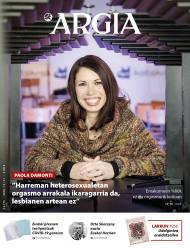

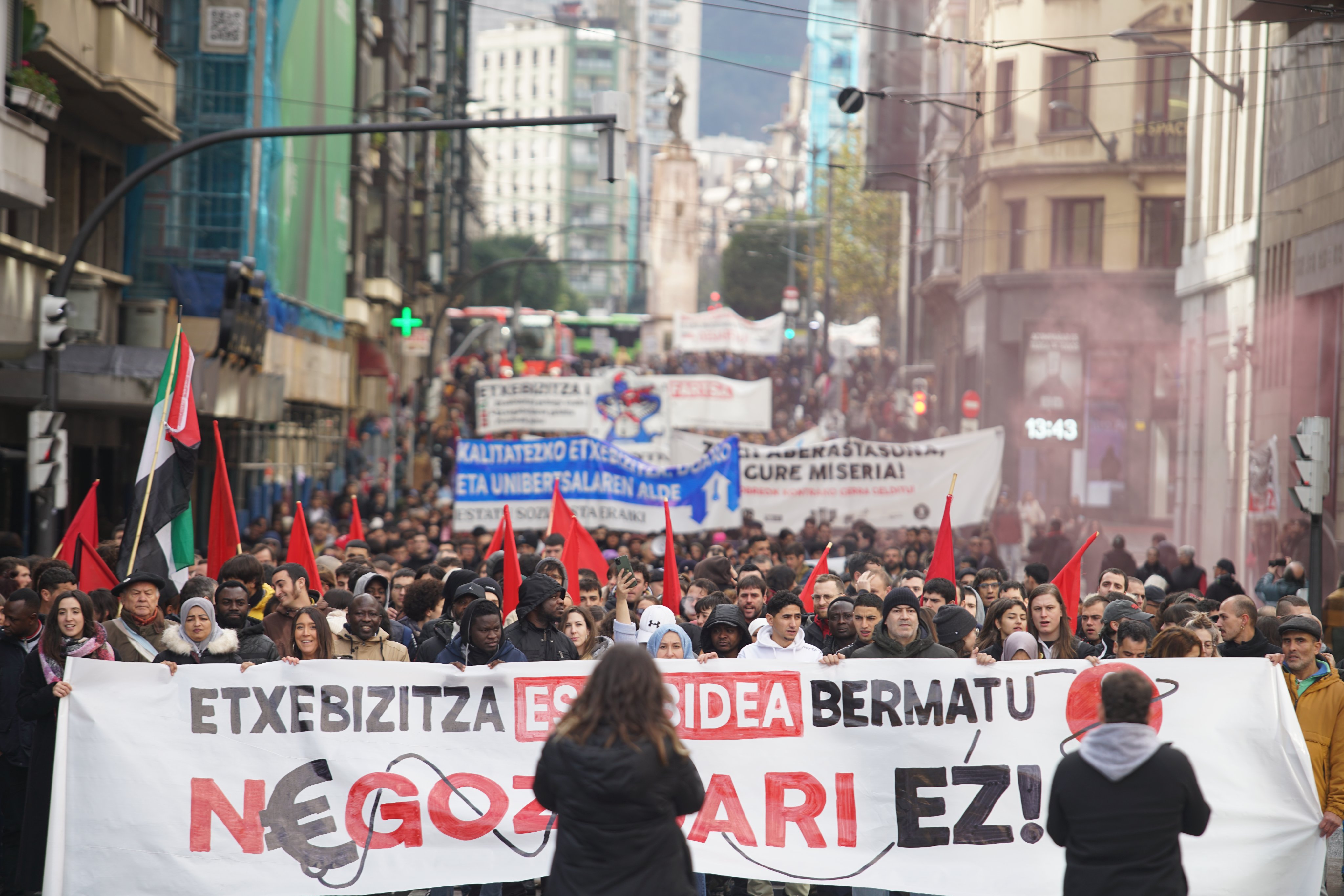

.jpg)
